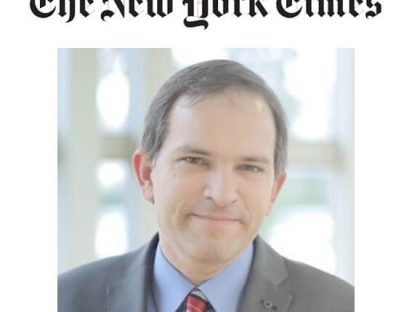The 5th Workshop on EU-China Relations in Global Politics will take place on 10-12 March 2016 at Hong Kong Polytechnic University (SAR).

Like last year the local coordinator is Maximilian Rech, programme director at ESSCA’s Shanghai campus.
The workshop is jointly organised by the Graduate School of Global Politics at the Freie Universität Berlin, the EU*Asia Institute at ESSCA School of Management, and the Center for Economic Sustainability and Entrepreneurial Finance at the School of Accounting and Finance of Hong Kong Polytechnic University. It is generously supported by the Hong Kong office of the Konrad-Adenauer-Stiftung (Regional Project ‘Energy security and Climate Change’).
Please find the complete Call for Papers below.
You can also download it in PDF format here.
Call for contributions:
China is the largest consumer, producer and net importer of energy in the world. According to the European Commission’s statistical data on energy 2014, China accounted in 2011 for 20.9% of global energy consumption and 18.4% of global energy production. In comparison, the European Union (EU) constituted at the same time 12.7% of global energy consumption and 6.1% of global energy production. Policymakers place energy issues among top concerns. The key challenge is to meet energy demands and aim – in a long term perspective – at a low emission energy system.
The EU and China are key partners in the area of energy, one of the strategic pillars of the EU-China 2020 Agenda. Global energy security – next to climate change adaption and mitigation – is one of the core priorities; hence implementation of a roadmap for EU-China energy cooperation is important in order to reinforce exchanges in the fields of energy legislation, policy and formulation of standards. This cooperation in energy regulation could serve as a platform to share experience and promote best practices both regionally and internationally. Six priority areas have been identified for cooperation in energy issues: renewable energy, smart grids, clean coal, nuclear energy, energy efficiency in buildings and energy legislation.
In 2013, President Xi Jinping has introduced the ‘New Silk Road’ concept which aims to improve the connectivity between Asia and Europe. One of the key objectives is to increase the access to energy sources. Regarding this issue, the EU has not defined a strategy yet. Furthermore, the experience of the United States with shale gas has attracted interest in Europe and China. Shale gas extraction could lower China’s dependence on coal and thereby cut greenhouse gas emissions. On the other hand, the EU could benefit from reduced volatility in global gas markets.
In the era of rapid globalisation, regions and municipalities are re-claiming their historic role of being important actors in international politics. Today, global cities are important economic hubs which create innovation but also consume a lot of energy. Cities seek to source and interconnect the best solutions for mobility, sustainable energy consumption, and space utilisation, offering a great place to live and work, despite rising population density. A more constructive involvement of regional and municipal actors in energy policy and climate change is not clearly defined yet.
What are the future sources of energy? Could China’s ambitious Silk Road Initiative help satisfy China’s demand for energy? Can closer cooperation between the EU and Asia foster energy security and progress in climate change? How do Asian and European cities cooperate and share best practices concerning energy policy and sustainable development?
We cordially invite researchers industry and academia as well as practitioners and policy makers at all stages of their career, coming from China, Europe and beyond to present their research and professional experience. Contributions related to the following thematic panels are most welcome:
- The Geopolitics of Energy in Europe and Asia
- Macro-Economics & Micro-Business of Changing Energy Markets
- The Role of Regional and Municipal Actors in Energy and Climate Change Policy
- Innovation & Reciprocal Investment in EU-Asian Energy Sectors
The working language of the workshop is English.
The scientific committee is composed of:
Prof. Dr. MEN Jing, InBev-Baillet-Latour Chair of European Union-China Relations at College of Europe
Prof. Dr. Klaus SEGBERS, Director of the German Chinese Graduate School of Global Politics at Freie Universität Berlin
Dr. Frauke AUSTERMANN, Head of Cologne Campus at International School of Management
Prof. Dr. SHEN Wei, Director of the Confucius Institute at Lancaster University & Jean Monnet Chair in EU-China Relations at ESSCA School of Management
Prof. Dr. Miranda SCHREURS, Director of the Environmental Research Centre at Freie Universität Berlin
Dr. Peter HEFELE, Director of the Regional Project “Energy Security and Climate Change” at Konrad-Adenauer-Stiftung, Hong Kong
Prof. Dr. Louis CHENG, Associate Director of the Center for Economic Sustainability and Entrepreneurial Finance, The Hong Kong Polytechnic University
Prof. Dr. Francis SNYDER, C.V. Starr Professor, EU Jean Monnet Chair ad personam and Director of the Centre for Research on Transnational Law at Peking University School of Transnational Law
Logistics:
Please send your paper proposal of no more than 500 words together with a brief CV to Maximilian RECH at maximilian.rech@essca.fr
- Deadline for paper proposals is Monday, 30 November 2015.
- The organisers will confirm your participation by Monday, 21 December 2015.
- The final paper may not exceed 8,000 words (excluding bibliography).
An electronic version of the paper is due by Friday, 12 February 2016, 23.59h CET. - Download this call as PDF: https://www.essca-knowledge.fr/wp-content/uploads/sites/4/2015/11/5th-Workshop-on-EU-Asia-Relations-CfP.pdf
- A report on the 4th Workshop that took place in March 2015 at Sichuan University can be found here.
- The 3rd Workshop was hosted by Sun Yat-sen University in Guangzhou. Report here.




